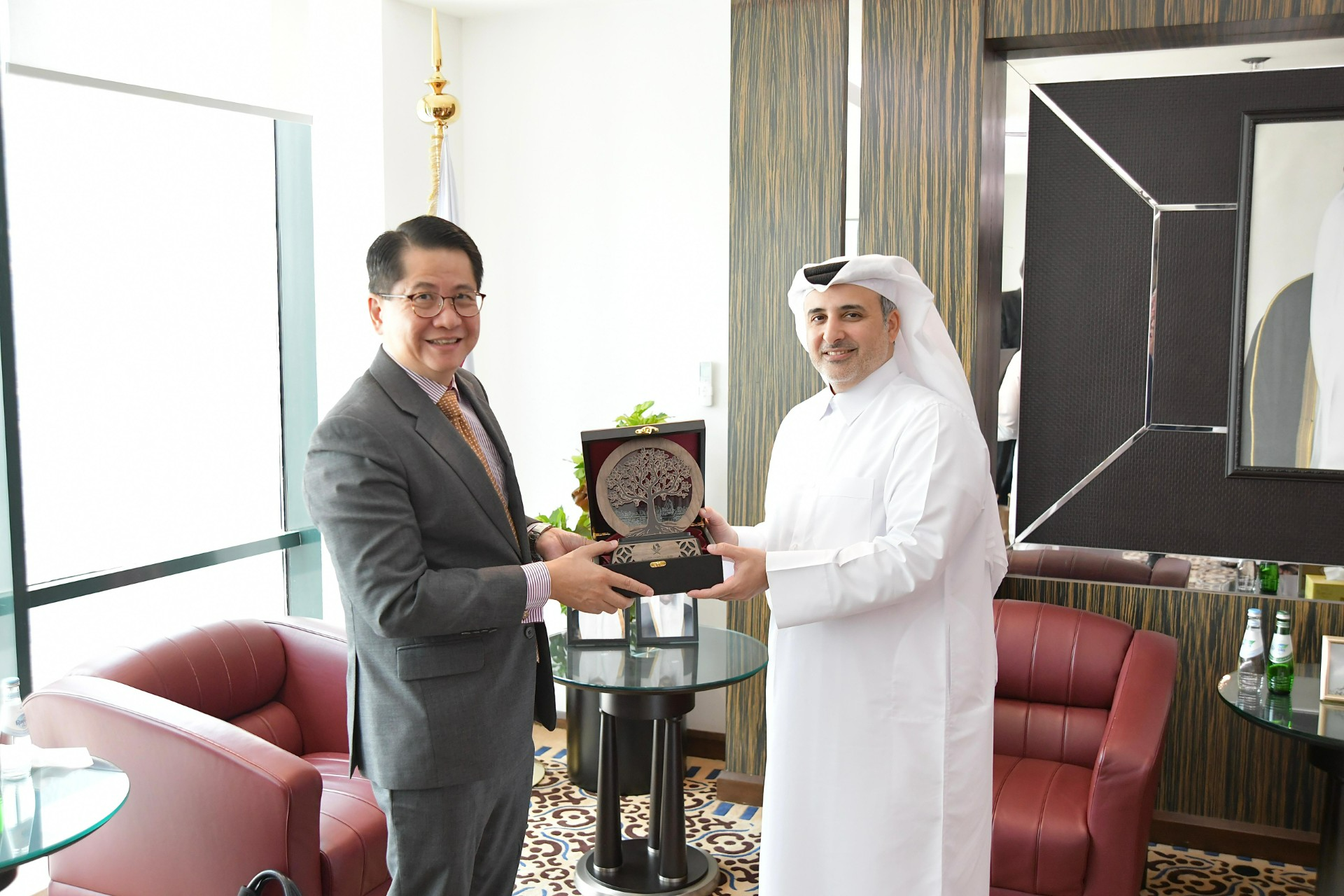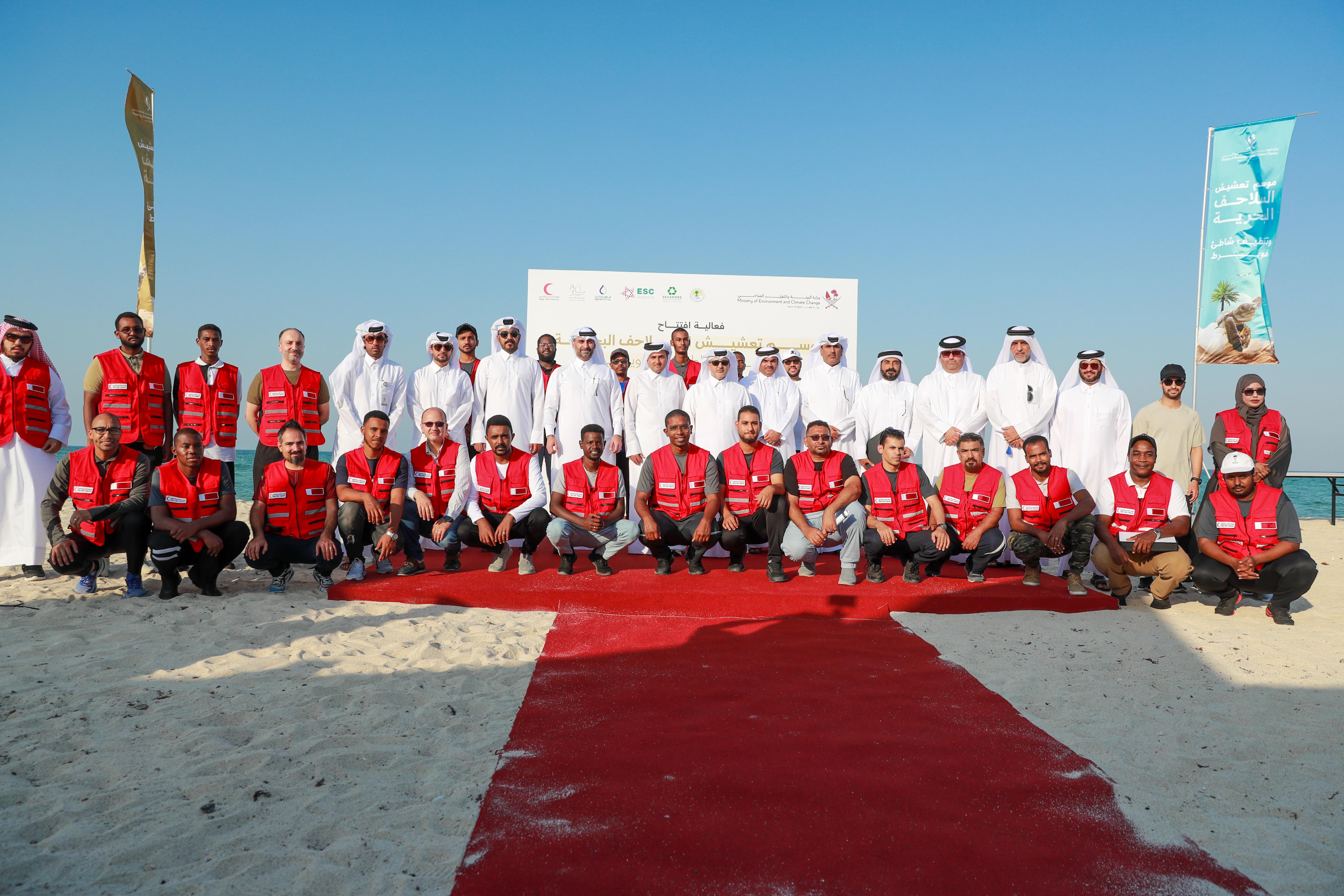
In the presence of HVAC and refrigeration companies in Qatar, the Ministry of Environment and Climate Change organizes a workshop on the importance of preserving the ozone layer
This morning, the Ministry of Environment and Climate Change, represented by the Chemicals and Hazardous Waste Management Department, organized a workshop on the methods and importance of controlling ozone-depleting substances. The workshop was held in collaboration with the United Nations Environment Programme and Qatar University and was attended by relevant authorities and companies in the HVAC and refrigeration sector in Qatar.
The workshop, titled “Interactive Workshop for Authorities and Companies in the HVAC and Refrigeration Sector,” discussed the importance of regulating the use of ozone-depleting substances in accordance with the Vienna Convention for the Protection of the Ozone Layer and the Montreal Protocol. It also emphasized the need to combat illegal trafficking of ozone-depleting substances and stressed the importance of taking further steps to reduce greenhouse gas emissions, thus enhancing international efforts to protect the ozone layer and mitigate the impacts of global warming.
In this context, Mr. Abdulhadi Nasser Al Marri, the Assistant Undersecretary for Environmental Affairs at the Ministry of Environment and Climate Change, affirmed that the workshop stems from Qatar’s recognition of the global challenge of protecting the ozone layer. He emphasized that addressing this challenge requires concerted efforts on national, regional, and international levels. The ozone layer holds great importance in safeguarding the Earth from harmful ultraviolet radiation from the sun.
The Assistant Undersecretary for Environmental Affairs added: “In Qatar, we believe in the importance of international cooperation in efforts to preserve the environment, including protecting the ozone layer. The Ministry of Environment and Climate Change is keen on collaborating with various sectors to fulfill Qatar’s commitments to the Vienna Convention for the Protection of the Ozone Layer, the Montreal Protocol on ozone-depleting substances, and the plan for the gradual phase-out of these substances. Additionally, we closely monitor and regulate the use of these substances and explore suitable alternatives.”
During his speech on the sidelines of the workshop, Dr. Mohammed Al-Shammari, the Director of the Chemicals and Hazardous Waste Management Department, emphasized that the workshop is part of Qatar’s efforts to protect the environment and work towards its sustainability. This includes reducing the use of ozone-depleting substances and replacing them with environmentally friendly alternatives. He pointed out that the Ministry invited various relevant government and private entities to attend the workshop, aiming to foster a shared vision for environmental protection.
Dr. Mohammed Al-Shammari clarified that Qatar, through various steps it takes, consistently reaffirms its commitment to all international treaties and agreements related to this matter. The workshop is one of these steps aimed at informing and raising awareness among companies operating in this field about the necessity of complying with these commitments. He emphasized that stakeholders must keep pace with international regulations and have a full awareness of their responsibilities. They should also familiarize themselves with suitable alternatives for usage.
Mr. Khaled Al-Kilali, the Regional Coordinator for the Montreal Protocol in the West Asia office of the United Nations Environment Programme (UNEP), emphasized the importance of the workshop in raising awareness about ozone-depleting substances, which are one of the causes of the current global warming and climate change issues. He praised Qatar’s commitment to all international obligations it has signed and its dedication to preserving the global environment and protecting the planet.
In the same context, Ms. Mona Al-Amadi, the Head of the Hazardous Substances Department and the Ozone Focal Point at the Ministry of Environment and Climate Change, pointed out that the workshop included familiarizing companies in the HVAC and refrigeration sector and stakeholders with the development of the electronic system on the website of the ministry. This system encompasses mechanisms for licensing hazardous chemical substances and ozone-depleting substances (R-22), including the annual and additional quota requests, shipment release requests, and alternatives to ozone-depleting substances. She highlighted that the updates to the electronic system involved linking all relevant government entities involved in this matter.
The Head of the Hazardous Substances Department revealed the launch of this new system after Eid al-Adha. The system includes expediting these transactions in less than 24 hours from the time of application submission. She also mentioned that the ministry has recently completed a project for managing refrigerants and licensing technicians working in the HVAC and refrigeration sector. This project encourages the use of refillable cylinders and aims to phase out non-refillable ones by 2024, as this measure has a positive impact on environmental protection and waste reduction. Moreover, it prevents the release of refrigerants into the atmosphere. Additionally, licensing specialized centers for refrigerant container refilling and training and licensing technicians are part of the initiative. The implementation of the project is pending approval from other government authorities.
The workshop aimed to raise awareness about the importance of preserving the ozone layer, as it serves as a protective shield for the Earth and sustains life by preventing harmful ultraviolet radiation from reaching the planet’s surface. Additionally, the workshop focused on efforts to rehabilitate the ozone layer and restore its ability to provide protection against harmful ultraviolet radiation for human health and the environment.
The workshop also included familiarizing participants with the role of the Ozone Team in implementing Qatar’s commitments, specifically related to the activities of the phase-out of ozone-depleting substances (Phase I and Phase II) project. Additionally, it covered the latest developments concerning the control and regulation mechanisms for these substances, promoting the use of proper practices following international standards in handling cylinders and equipment. Furthermore, the workshop encouraged and raised awareness among companies about importing refillable cylinders and reducing their accumulation, considering them as waste.


